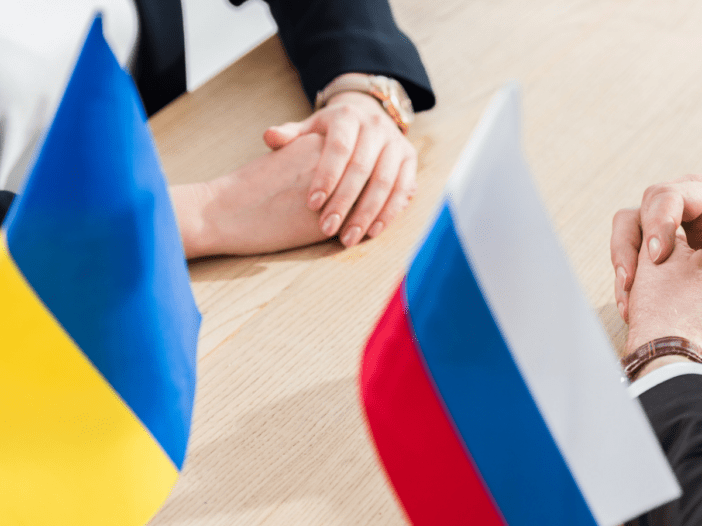It’s Putin’s fault.
Shutdowns were necessary to save lives. Shutdowns caused supply chain disruptions. So COVID — a virus — caused today’s inflation; the feds are blameless.
And last week, the Russians invaded Ukraine.
So now we have another crisis. We have to keep printing money to fight the Russians and the supply chain disruptions.
Inflation? It’s Putin’s fault.
Amy Bell at the Financial Times:
‘Russia’s invasion of Ukraine has shattered hopes of a strong global economic recovery from coronavirus, at least in the short term.’
Another headline at the FT: ‘Ukraine conflict disrupts grain trade and provokes fears of global food shortages’.
And here’s another: ‘Conflict raises possibility of stagflation’.
When we left you yesterday, Russian troops were said to be advancing on Kyiv. The government there, headed by a Mr Zelensky, was handing out guns — AK47s, with instructions to defend the capital.
Surely, the Ukrainians were nervous. But there was nervousness all around. The Russian stock market lost a third of its value on Thursday. Lukoil CEO Vagit Alekperov lost US$13 billion, according to Bloomberg’s handy billionaire index.
Incredible claims
One of the problems with foreign policy is that it is too foreign. No one really knows what is happening at home, let alone abroad, especially not the ‘experts’. Hillary Clinton, for example, was quick to seize the opportunity. The Russian invasion was a ‘state of emergency for democracy’, she said, and a time for ‘rebuilding our credibility’.
Uh oh. ‘Credibility’ is almost always cited just before a major foreign policy blunder. While she was Secretary of State, under Barack Obama, Ms Clinton approved bombing raids on seven different countries, largely because US ‘credibility was at stake’.
The emergency then was ‘terrorism’. Ms Clinton didn’t speak any of the many languages of the countries she bombed. Nor did she know their histories, cultures, religions, economies…or anything else. They are too ‘foreign’. Any real knowledge would have caused her to think twice…to consider the ambiguities, the nuances. But the mob wanted blood. The foreigners made good ‘targets’…and kept Ms Clinton in the public eye — readying her for the election of 2016.
Like the Middle East, the situation in Ukraine may not yield readily to a simple-minded analysis by the patriotic masses or foreign policy ‘experts’. There’s always more to the story. And they don’t want to know it.
But what a marvellous opportunity to strut your stuff. Hillary is back in the news with her opinions. So are the US’s retired generals, drawing on their experiences from the US’s 20-year debacle in Afghanistan, where they repeated the Soviet Union’s mistakes.
Self-harm ahead
The Biden administration, a light to the civilised world, expressed outrage on Thursday. And then it seemed to realise that Russia is the major source of strategic metals — such as titanium — on which much of modern industry relies. For their part, its European allies merely looked at their thermostats and hoped Russian gas would keep making its way into their furnaces and power plants.
Within hours, the emergency — like a snow squall — seemed to pass. The very next day, the oil price — thought to be most sensitive to the Russian menace — dropped…and prices for Russian stocks rose 45%.
There was talk of a negotiated settlement. And on Friday, in the US, the Dow shot up more than 800 points.
Recently, the press reports that the Russian invasion seems to have ‘stalled’. But the sanctions, including blocking Russian banks from the international money exchange system known as SWIFT, have gone ahead. Foreigners are now forbidden from trading in Russian equities. Russian assets are falling again. US stocks are headed down too.
The US will probably not be harmed, in any plausible way, by what is going on in the Ukraine. But the war will give it plenty more opportunities to harm itself.
Regards,
 |
Bill Bonner,
For The Daily Reckoning Australia

